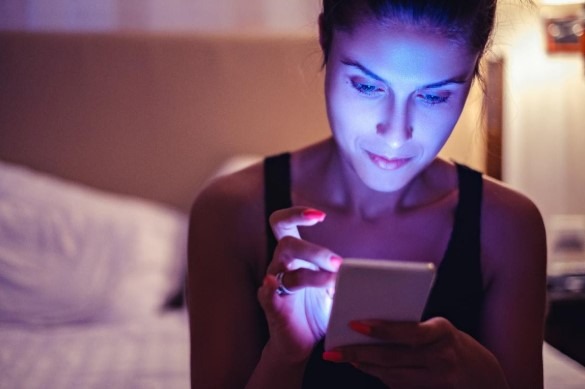The average person spends 24 hours a week online, according to The Telegraph. And, as they look at their computers or mobile phones, they get a glimpse at the blue light used to illuminate their screens.
You may have heard a whisper of the danger that may come with staring at blue lights for too long. But is it all bad blue?
Here’s what you need to know.

What is Blue Light Anyway?
You’ve heard the term thrown around, and you can somewhat deduce what it is. Blue wavelengths of light are great for you to see during the day. They increase your attention spans, boost your mood, and sharpen your reaction times.
But as we spend more time on electronic devices, we see more blue wavelengths than we should. And this is problematic, especially at night.
Bad Blue Light and Sleep
All of us run on a circadian rhythm, a 24-hour circuit that dictates when we wake up and when we sleep.
Your circadian rhythm stems from the hypothalamus, a portion of your brain. Still, your internal clock can be shifted and changed by outside sources
I’m a 20-something stay-at-home mother and wife. I have an amazing husband, a beautiful daughter, two loving dogs, and a lazy cat. I wouldn’t change my life for anything! I love to read, listen to music, cook and blog!

[…] mind, you might be wondering if there is any good that can come out of the light. Luckily, you can read more now about the blue light in this […]